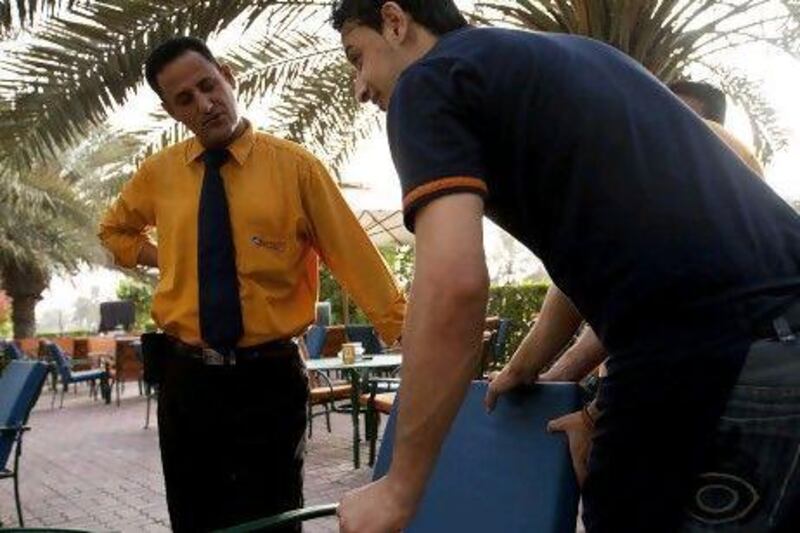They support many candidates but Egyptians in the Emirates are united in pride and hope at their homeland's first free presidential election.
"I am definitely hopeful," said Fadl Tarzi, an Egyptian who lives in Dubai. "I believe the revolution is a process, not a single event and there has been an awakening of consciousness among Egyptians."
He said it was unlikely that Egyptians would put up with "the extreme levels of corruption that the Mubarak era suffered from. That, in itself, is a positive outcome."
Although Mr Tarzi said he was not surprised that Mohammed Morsi, the Muslim Brotherhood candidate, was in the lead, he said he was shocked that Ahmed Shafiq, the former prime minister appointed by Hosni Mubarak, was in second place.
"I cannot see that being a reflection of reality," he said.
He said that he remains optimistic for the next round of elections, viewing the coming four years as an interim phase. "I have high hopes we'll see true new faces in the next elections," he added.
Like Mr Tarzi, other Egyptians across the UAE also expressed their hopes that there is a better future in store for Egypt. Yahia Abdelajawad Almutwaili, a 39-year-old Egyptian waiter in Abu Dhabi, said he believed the election would move Egypt forward.
"I voted for Ahmed Shafiq four days ago at the embassy," he said. "We need someone to take Egypt forward to democracy and he is the one to do it."
Regardless of who wins, he said, "these elections are a great step for Egypt and I am extremely proud to have been able to cast my vote".
Many Egyptians expressed a preference for Amr Moussa, the former foreign minister and former secretary general of the Arab League.
"Initially, I expected Amr Moussa to win but it's not looking like that at all," said Andrew H, a 29-year-old Egyptian living in Dubai. "It's leaning more toward Morsi and Shafiq, which is shocking, because a lot of people said they were not as clean as they thought."
As a Moussa proponent, Andrew said his man would be the most suitable candidate thanks to his foreign experience.
"He's the most well-rounded person and he has experience outside Egypt so he can communicate with other countries," said Mr H. "He won't make silly decisions either."
That feeling was echoed by the Abu Dhabi resident Tamer Ahmad, 30. "Amr Moussa is the perfect candidate because he has previous knowledge of the country and I'm 80 per cent sure he will win," he said.
For Mohammed Elbatanouni, a 30-year-old Egyptian resident in Dubai, the pride of taking part in his country's presidential election was overwhelming.
And because of that, he flew to Egypt to cast his vote. "It's the first time in my life that I vote and I'm very proud of what's happening, regardless of the outcome," Mr Elbatanouni said.
"I voted for Amr Moussa on Thursday and the whole organisation was very impressive."
However, he said that none of the candidates had impressed him much. "But Amr Moussa knows the country inside out," he said. "He knows how to deal with it internally and externally. He knows Egypt's economy and he's been in action for 20 to 30 years."
Although he was not confident Moussa would win, he said the top three contenders in the race were Morsi, Shafiq and Hamdeen Sabahi, an opposition politician. "His plans are good but he wasn't my preference," Mr Elbatanouni said. "And although Shafiq was appointed prime minister by Mubarak in the bad days, his work is positive and his plans are good."
He stood by his vote for Moussa, believing his plan for Egypt would be successful. "He's a guy that has a great plan for the country on how to take it forward. He's not greedy and he just wants to be in charge for one term, which is four years," said Mr Elbatanouni. "Whether it's education, health or the economy, he has the best plan for Egypt."






